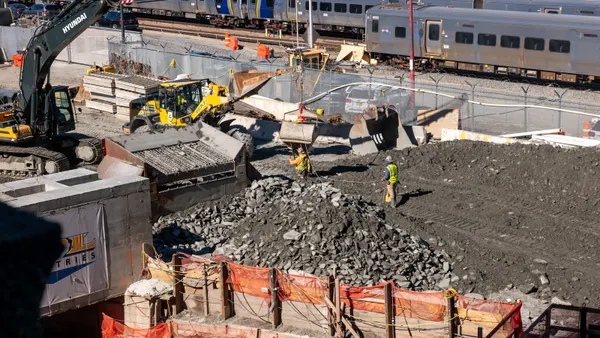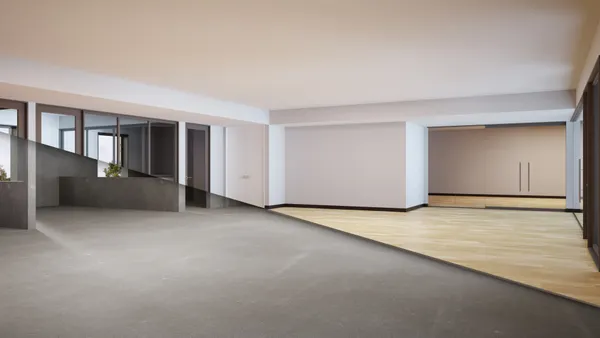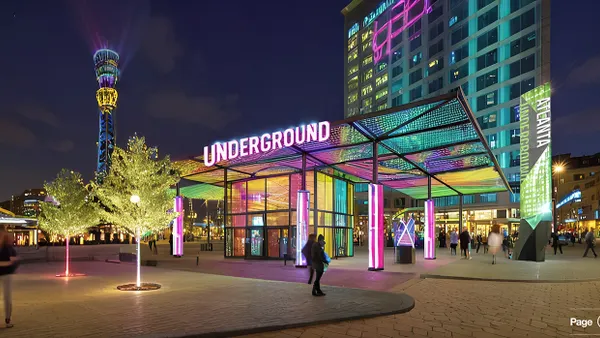Dive Brief:
- Baltimore City Council is looking at the possibility of reviving the city's "Dollar House" program, according to U.S. News & World Report and others.
- The original program from the 1970s and 1980s allowed city-owned homes to be purchased for $1, plus low-interest loans for rehabilitating the properties, as long as purchasers lived in the homes for a certain amount of time.
- Advocates want the program brought back to tackle the city's prevalent blight problem and to prevent more homes from becoming vacant, while creating jobs. Critics believe the $1 homes program is outdated and point to other initiatives that consider the city's current conditions.
Dive Insight:
Baltimore has tens of thousands of vacant properties, and the city owns about 16,000 of them. For decades, tackling the blight problem has been an ongoing issue for Baltimore's leaders. Recent years saw renewed efforts and new approaches to the topic, including last year's announcement of a $700 million plan to demolish blocks of abandoned buildings at a time.
Community advocates are pushing for the abandoned properties to be refurbished rather than torn down. They point out that demolishing properties can lead to an increase in cleared lots that then sit vacant. Baltimore also has a lot of connected rowhouses, so demolishing one or two blighted properties could require tearing down an entire block of homes. The tear-down process is also viewed as far more expensive than refurbishment. Plus, rehab projects could provide jobs for the city's residents while increasing the amount of affordable housing.
Advocates of the $1 homes plan say it was successful in cutting down on blight during its heyday in the 1980s. But Baltimore's housing commissioner isn't sure it could work now because the city has triple the number of vacant homes as it did in the 1980s, in addition to about a quarter of a million fewer residents. For those reasons and others, some city leaders prefer to focus on new programs, such as the Vacants to Value initiative. But critics say that program has only reduced the number of city-owned vacant properties, not the total amount of vacant properties. That's prompting calls for a different program to revitalize struggling neighborhoods where the city doesn't own abandoned properties.
Chicago has its own $1 properties program, which allows home owners to purchase an abandoned property on the same block where they already own property. The success of the program since its launch in 2014 has prompted subsequent rounds of sales in the past three years. Like Baltimore, Chicago has had an increase in blight and a decrease in population, which ultimately leads to a drop in property tax collected and less funding for city projects.
All 15 of the Baltimore City Council members back the idea of bringing back the $1 homes program and Mayor Catherine Pugh supported it during her campaign, but several members of her administration have expressed concerns about it. The government is still debating whether to move forward with it.












